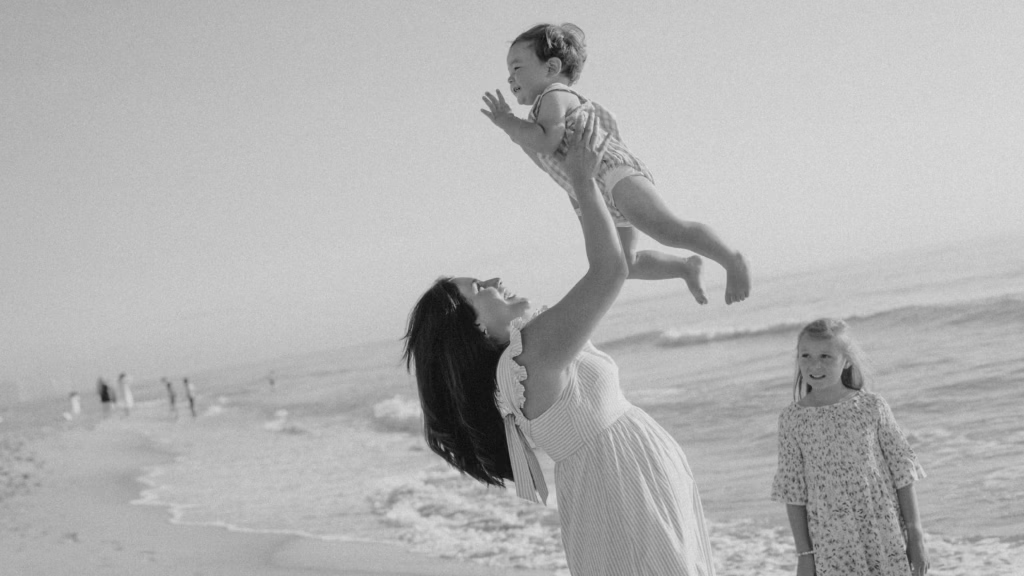Introduction
The journey toward parenthood through egg donation is both deeply personal and profoundly hopeful. For many individuals and couples facing infertility challenges, medical conditions, same-sex relationships, or single-parent-by-choice paths, egg donation represents a promising avenue to build their families.
Choosing the right egg donor isn’t just about finding a genetic match—it’s about making one of the most significant decisions in your family-building journey. With so many factors to consider, from medical history to personal values, the process can feel overwhelming.
That’s why we’ve consulted with reproductive specialists and fertility counselors to create this comprehensive guide on choosing an egg donor. These seven expert-backed tips will help you navigate this complex process with confidence and clarity, saving you time and offering peace of mind during this emotional journey.
Whether you’re just beginning to explore egg donation or you’re ready to make your selection, these insights will help you approach donor selection with both heart and wisdom.
1. Understand Your Needs and Goals
Clarify Your Reasons for Donation
Before diving into donor profiles, take time to reflect on your personal motivations for choosing an egg donor. This self-awareness creates a foundation for making decisions that align with your values and vision for your family.
Some intended parents prioritize finding a donor who physically resembles their family, while others focus primarily on health factors. Many LGBTQ+ families or single parents might have specific considerations regarding donor identity or genetic background.
Dr. Sarah Cohen, reproductive endocrinologist at Cornell University, explains: “Understanding your own priorities before searching for a donor helps narrow your focus and prevents feeling overwhelmed by too many options.”
Set Clear Goals for Your Family
Consider both immediate and future family-building plans when choosing an egg donor. If you hope to have genetically related siblings in the future, you may want to select a donor willing to donate multiple times or one who has already produced several frozen eggs.
Think about which health factors matter most to you. Some intended parents have specific concerns about family medical history, while others prioritize donor intelligence, athletic ability, or artistic talents.
Remember that your family goals may evolve over time, so selecting a donor who meets your current needs while allowing flexibility for the future is ideal.
2. Know How to Find a Reputable Egg Bank or Agency
Research Top Egg Banks
The quality of your egg bank or donor agency significantly impacts your experience and outcomes. Look for established organizations with proven track records of successful pregnancies and ethical practices.
Key indicators of reputable egg banks include:
- Transparent success rates verified by third parties
- Comprehensive donor screening protocols
- Clear policies on donor compensation and rights
- Positive reviews from both donors and recipient families
- Accreditation by reproductive medicine organizations
The American Society for Reproductive Medicine provides guidelines for ethical practices in egg donation that reputable agencies should follow.
Verify Legal and Ethical Standards
Ethical egg donation requires proper informed consent, fair compensation, and protection of all parties’ rights. Before selecting an agency, verify their compliance with health and safety regulations and their approach to donor relations.
Ask specific questions about:
- How donors are recruited and screened
- Psychological evaluation procedures
- Legal contracts between donors and recipients
- Privacy protections for both donors and recipients
- Policies regarding any future contact between donors and offspring
According to a study in the Journal of Law and the Biosciences, agencies with comprehensive legal frameworks protect both donors and recipients from future complications.
3. Evaluate Donor Profiles Carefully
Examine Medical and Genetic History
A donor’s medical history provides critical information about potential genetic conditions that could affect your future child. Most reputable egg banks screen for common genetic disorders like cystic fibrosis, spinal muscular atrophy, and Tay-Sachs disease.
Look beyond just the donor’s personal health to their extended family medical history. Important factors to consider include:
- Presence of hereditary conditions in the donor’s family
- Mental health history
- Allergies or autoimmune conditions
- Age-related health concerns in family members
- Previous pregnancy outcomes (if applicable)
The Centers for Disease Control and Prevention recommends understanding family health history as a key component of reproductive planning.
Consider Physical Traits and Background
While physical resemblance isn’t medically necessary, many intended parents feel comfortable choosing a donor whose appearance shares similarities with their family. Common considerations include:
- Height and build
- Skin, hair, and eye color
- Ethnic background
- Distinctive facial features
Beyond physical traits, consider educational background, interests, and talents if these factors are important to your family vision. Some agencies provide childhood photos, personality assessments, and even audio interviews to help you connect with potential donors on a deeper level.
4. Assess the Donor’s Health and Fertility
Review Donor Screening Process
Understanding exactly how your potential egg donor was screened provides reassurance about the quality of eggs and minimizes health risks. Standard medical screenings should include:
- Comprehensive infectious disease testing (HIV, hepatitis, etc.)
- Hormone level assessments
- Ultrasound evaluation of ovarian reserve
- Drug and alcohol screening
- Psychological evaluation
According to guidelines from the Food and Drug Administration, egg donors must undergo specific testing for communicable diseases within 30 days before donation.
Ask About Fertility History
A donor’s previous fertility outcomes can provide valuable information about your chances of success. If available, inquire about:
- Previous donation cycles and their outcomes
- Number of eggs typically retrieved
- Fertilization rates from past donations
- Any pregnancies resulting from previous donations
- Any personal pregnancies the donor has experienced
Dr. James Liu from the University of Cincinnati notes, “Donors who have previously produced eggs resulting in successful pregnancies demonstrate proven fertility, which can be reassuring for intended parents.”
5. Get Expert Guidance
Consult Reproductive Specialists
Your fertility doctor brings valuable expertise to the donor selection process. They can help interpret medical information, identify potential concerns, and match donors to your specific fertility situation.
Consider scheduling a consultation specifically to discuss donor selection. Bring potential donor profiles and ask for professional input on:
- How a donor’s medical history might interact with your own
- Whether certain genetic factors should influence your choice
- How donor age and other factors might affect success rates
- Recommendations based on your specific fertility diagnosis
Research published in Fertility and Sterility shows that clinical guidance significantly improves satisfaction with donor selection.
Consider Genetic Counseling
Genetic counselors specialize in assessing inherited health risks and can provide personalized guidance about potential genetic compatibility with egg donors.
A genetic counselor can:
- Evaluate the significance of genetic conditions in your or the donor’s family
- Recommend additional testing if needed
- Explain complex genetic concepts in understandable terms
- Help you weigh genetic factors against other considerations
Many fertility clinics now offer genetic counseling as part of their donor program, recognizing its value in helping families make informed decisions.
6. Review Donor Compensation and Contract Details
Understand Compensation Structures
Ethical egg donation includes fair compensation for donors while avoiding exploitation. Current compensation typically ranges from $5,000 to $10,000 per donation cycle, depending on location, donor experience, and other factors.
Be wary of agencies with extremely high or low compensation rates, as these may indicate ethical concerns. The total cost typically includes:
- Direct donor compensation
- Medical screening and procedure expenses
- Agency fees and administrative costs
- Legal services for contracts
- Travel expenses if using a non-local donor
The American Society for Reproductive Medicine provides ethical guidelines regarding appropriate compensation for egg donors.
Clarify Legal and Contract Terms
Clear legal agreements protect everyone involved in the egg donation process. Your contract should explicitly address:
- Rights to any unused embryos
- Donor anonymity or identity disclosure options
- Provisions for future contact (if any)
- Number of families the donor can help create
- Responsibilities regarding medical disclosure
- Process for updating medical information over time
Work with an attorney specializing in reproductive law to review all contracts before signing. According to the American Bar Association, proper legal protection is essential in assisted reproduction arrangements.
7. Trust Your Instincts and Make Informed Decisions
Listen to Your Gut Feelings
After reviewing medical histories, genetic screenings, and legal details, don’t underestimate the importance of your intuitive response to a donor. Many intended parents report feeling an inexplicable connection to the donor they ultimately select.
This emotional component doesn’t replace rational assessment but complements it. If you feel hesitant about a donor despite good medical credentials, or particularly drawn to one, pay attention to those feelings.
Take time for reflection between reviewing profiles and making your final selection. Discuss your thoughts with a partner, trusted friend, or therapist to help clarify your feelings.
Don’t Rush the Process
Choosing an egg donor is a significant decision that deserves thoughtful consideration. While fertility treatments often create time pressure, rushing this particular choice rarely leads to satisfaction.
Set aside adequate time to:
- Compare multiple donor options
- Ask follow-up questions about promising candidates
- Discuss options with your partner if applicable
- Consult with your medical team
- Process your emotional responses
Remember that finding the right donor is more important than finding the fastest solution. Most intended parents report that the time invested in careful selection was well worth the effort.
Conclusion
Choosing an egg donor represents a significant step in your family-building journey. By following these seven expert-backed tips, you can approach this process with confidence and clarity.
Remember that there is no perfect donor—only the right donor for your unique situation and values. By understanding your needs, working with reputable professionals, evaluating medical and personal factors, and trusting your instincts, you’ll make choices that align with your vision for your family.
The path to parenthood through egg donation has helped thousands of families experience the joy of having children. With thoughtful consideration and expert guidance, you can navigate this process successfully and move forward with hope toward building your family.
FAQs About Choosing an Egg Donor
How long does the process of selecting an egg donor typically take?
The timeline for choosing an egg donor varies significantly based on your specific requirements and the availability of donors. Most intended parents spend 1-3 months reviewing profiles and making their selection. If you have very specific criteria (like rare ethnic background or particular genetic traits), the process may take longer. Working with larger egg banks or multiple agencies can speed up the process by providing more options simultaneously.
Will my child be able to contact the egg donor in the future?
This depends entirely on the type of donation arrangement you select. Today, there are three common approaches: anonymous donation (where identifying information is never shared), semi-open donation (where limited contact may occur through the agency), and fully open donation (where direct contact is possible). Many agencies now offer identity-release programs where donors agree to be contacted once the child reaches adulthood (typically age 18). This important decision should be made early in your search, as it will determine which donors are available to you.
What if I discover my egg donor provided false information after we've already used her eggs?
While comprehensive screening makes this scenario rare, it does occasionally happen. If you discover material misrepresentation after using a donor’s eggs, document everything and contact your agency immediately. Your contract should specify remedies for such situations, which might include partial refunds or replacement cycles. Legal recourse varies by state and contract terms. This underscores the importance of choosing a reputable agency with thorough vetting procedures and working with a reproductive attorney to review all contracts.
Can I choose a donor who physically resembles me or my partner?
Yes, most egg donation agencies and banks allow searching for donors based on physical characteristics. Many offer advanced search filters for height, weight, hair color, eye color, and ethnic background. Some agencies even use facial recognition technology to match donors to intended parents’ photos. While physical resemblance is important to many families, remember that environmental factors also significantly influence appearance, and genetic inheritance is complex—even biological siblings can look quite different from each other.
Is it better to choose a first-time egg donor or someone who has donated successfully before?
Both options have potential advantages. Proven donors (those who have completed previous cycles resulting in pregnancies) demonstrate fertility success and commitment to the process. First-time donors may have more flexible schedules and potentially younger eggs, though without the track record of successful donations. Studies from the National Institutes of Health show similar pregnancy rates between first-time and repeat donors when controlling for age and other factors. Your fertility clinic can help you weigh these considerations based on your specific situation.







